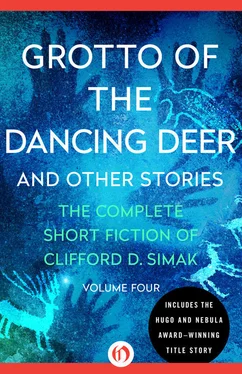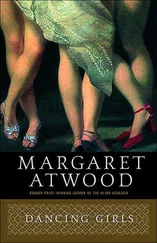“Shoot someone?” asked Packard.
The man tilted against the stable supplied the answer. “Yeah, he killed someone all right. One of the guards down at the express office.”
Packard nodded. “I see. Trying to stick up the place.”
“Hell no,” said the man. “Just met him on the street in broad daylight and let him have it. Never gave no reason.”
“Funny thing,” said Packard.
“Ain’t it,” the man agreed.
“Must of knowed him somewhere else,” Clint opined. “Maybe been followin’ him.”
The stable man moved away, leading the horse inside the barn.
“If you want to wash up,” said the other man, “the horse trough is out in back.”
Packard smiled. “Maybe I will,” he said.
“Crystal Palace is the only bar in town,” said the man, “and that place next door is the only hotel. If you don’t go for hotels, Clint can fix you up a place where you can spread your blanket.”
“Thanks,” said Packard.
A man shuffled off the board sidewalk and moved through the darkness toward them. He was a small man, Packard saw, and he wore a checkered suit of black and white. A gold watch chain glittered across his vest.
His cheeks were puffed out like a gopher’s scurrying home with a load of grain and his lips were puffed out, too, in what seemed an eternal pout. A jaunty mustache rode his upper lip and struck a grotesque note.
“Good evening, gentlemen,” said the little man.
“Good evening,” said the man in the chair.
“I’m looking for my eye,” said the man. “You haven’t seen it, have you?”
The chair crashed forward and the man in it was aghast.
“You’re looking for your what!”
“My eye,” explained the little man. “It fell out and I lost it.”
He pointed toward the left side of his face, out of which stared an empty socket.
“It was a glass eye, you see,” he said. “It would look something like a marble.”
The man in the chair wheezed in bewilderment.
“No, I haven’t seen it. What makes you think you lost it here?”
“Don’t know where I lost it,” explained the little man. “Got drunk, you see, and when I sobered up it wasn’t there.”
“Oh, I see.”
“It might be most anywhere,” said the little man.
“I’ll keep a watch for it,” the man in the chair promised.
“I wish you would,” the other told him. “I feel undressed without it.” He turned and shuffled off, head bent, as if looking for the eye.
The man in the chair looked up at Packard.
“We get the damndest people here,” he apologized.
Packard stood with his elbows on the bar, nursing his drink and staring in the mirror.
The Crystal Palace roared with life. Through the buzz of voices came the clink of glasses, the whir of gambling wheels, occasionally the soft snick of chips from the poker tables in the back. In one corner an old man with a violin and a younger one with an accordion teamed with the out-of-tune piano, fought a losing battle with the throaty rumble that ran through the place.
So Preston Cardway had shot an express company guard and been hung by the vigilantes, his body left dangling in the tree as a sort of grim warning for any who might come riding down the trail!
Well, it was something anyhow, Packard told himself, staring at the bottle-stacked mirror, to have that kind of warning. Even if Cardway had to die to give it. Cardway, the damn fool, going off half-cocked and shooting down a man. Although he hardly could be blamed for thinking he could get away with it. In his day, Cardway had shot down many men in the main streets of many towns in broad daylight and gotten away with it. What reason could he have had to think it would be any different here?
Only there was something wrong. Something that didn’t click somehow. Hangman’s Gulch didn’t seem the kind of town that was cleaning up, not the kind of place where vigilantes rode to bring law and order.
For one thing, Hangman’s Gulch wasn’t old enough. It still was new and raw, a boom town scarcely dry behind the ears. There was too much yip and ki-yi in it. Towns don’t get civic conscious, Packard told himself, until the shiny newness is worn off of them.
A man elbowed his way through the throng, thrust himself alongside Packard. In the mirror, Packard studied him. A man with a white collar and a black cravat in which a diamond stickpin gleamed, the tie bunched above a fawn-colored vest that sported a slender chain with a dangling golden toothpick.
The man’s mouth moved. “A stranger, aren’t you?”
“That’s right,” said Packard, talking to the reflection in the mirror rather than the man himself. “Just rolled in tonight.”
“My name,” said the man, “is Jason Randall. Owner of this place. Saw you here. Wanted to tell you that you’re welcome.”
“Mine is Packard,” Packard told him. “Stanley Packard. Just riding through.”
“Thought maybe you might stick around,” said Randall. “Lots of people do. Hangman’s Gulch is a good town. Won’t find none better between here and the coast.”
Packard studied the man with open interest. A slick customer, he figured. Ruthless and mean. Glossy and soft like a spider squatting in his web.
Randall’s eyes shifted away from Packard’s, stared beyond his shoulder. Packard swung around. A man stood just inside the swinging doors. A tall, straight man who didn’t wear a gun, a man whose silver hair was brushed back from his forehead like a gleaming crown of light, shining in the crystal lamps swaying from the ceiling. His head was high and he looked at the smoke-dimmed crowd with something that was close to pity on his face.
Someone on the floor saw the man standing by the door and shouted at him: “Hey, here’s Preacher. Come on, Preacher, belly up. I’ll stand you to a drink.”
The man did not move, eyes still searching the crowd. A woman tittered, a shrill, high sound that cut across the wheezing music, the rumble of many voices, the clatter of the wheels.
The man saw Randall now, stood staring at him for a moment, Randall staring back. Then, slowly, the man paced forward. The crowd parted to let him pass. Faces turned after him.
He halted in front of Randall. His voice was low: “Mr. Randall, could I see you for a moment?”
“Reverend,” boomed Randall, “anything you got to say to me, you can say right here.”
“It is scarcely—” began the man, but Randall cut him short.
“You want me to close up.”
The man nodded. “Sunday is the Lord’s day,” he said. “It is scarcely right that a place like this—”
“All that’s the matter with you, Reverend,” yelled Randall, “is that you’re sore because I have a crowd and you don’t have one. Because your two-bit sermons can’t compete with what I offer here.”
“It would only be for Sunday,” said the minister. “Say, from Saturday midnight until Monday morning. I have no quarrel with what is done on other days of the week, but on Sunday, certainly, there should be some peace and decorum. Drunken men should not be sprawled on the street so that ladies who come to my church have to walk out in the street to get around them.”
Randall spat on the floor. “Look, Reverend, you’re sticking in your nose where you have no call. I’m attending to my business and you attend to yours. If both of us do that, we’ll get along—”
Packard’s hand reached out, closed on Randall’s shoulder, spun him around with a vicious tug that pulled and twisted his coat tight against his body. With another savage tug, he drew the man close to him, so that their faces were no more than scant inches apart.
“Look,” said Packard, “where I come from we hold some respect for men who wear the cloth. Maybe we don’t agree with them, but at least we treat them decent.”
Читать дальше












